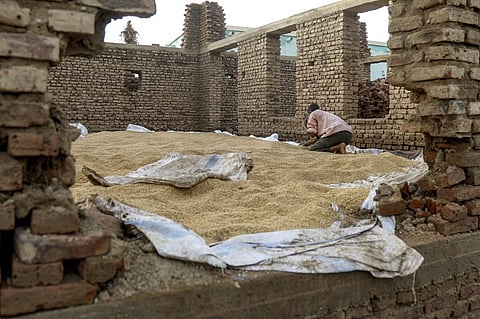

Severe drought caused by the El Niño weather phenomenon is threatening southern Africa with grain shortages and food insecurity, a UN food agency said Wednesday.
The recurring El Nino weather pattern, which causes a rise in global temperatures, returned in mid-2023 and is expected to last until May.
Grain shortages are set to worsen food insecurity, which has already affected 16 million people in the region in the first three months of the year, the UN Food and Agriculture Organisation (FAO) said.
"The foreseen shortfall in production, especially for maize, is expected to intensify households' food insecurity, push up domestic prices and spur a surge in import needs across the subregion," the FAO said.
Maize accounts for almost 20 percent of the calories consumed in southern African countries.
Malawi, Zambia and Zimbabwe have each declared a state of national disaster, while shortages have also affected Angola, Mozambique, Namibia and South Africa, the FAO said.
South Africa and Zambia, both traditionally grain exporters, will not be able to meet demand, it added.
These poor harvest forecasts are linked to "substantial" rain shortages in February and record high temperatures, the FAO said.
A World Weather Attribution report said the drought in southern Africa was driven mostly by El Nino, rather than by climate change.
